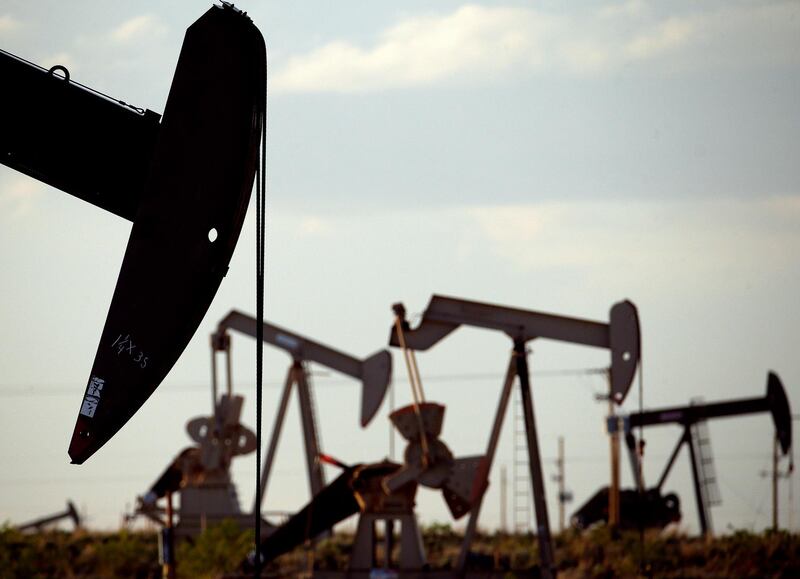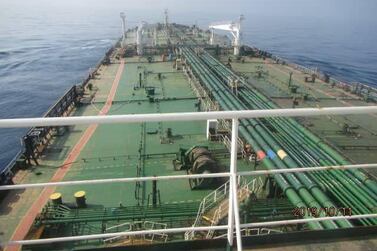Oil prices fell during early trading on Monday as trade concerns overrode fears of supply disruption following Friday's attack on an Iranian tanker in the Red Sea.
Brent was down 0.8 per cent at $60.01 per barrel at 12.45pm UAE time, while West Texas Intermediate also lost steam and was trading 0.9 per cent lower at $54.22 per barrel.
The benchmarks slumped as investors remained sceptical about the breakthrough between the US and China as a first step to end their trade war.
The world's two biggest economies worked to agree on a detente of sorts, with the US administration agreeing to freeze tariffs that were due to be introduced on $250 billion (Dh918bn) worth of Chinese goods.
In return, China agreed to purchase $40bn to $50bn worth of American farm products such as soybeans and livestock.
However, the truce has not changed sentiment, with the markets fearful of further blows to growth as a result of trade war-fuelled recessionary headwinds.
"Prices are already headed lower in early trading today, and while the market waits for potential responses from the Iranians, the continued inability of geopolitics to sustain price gains is a testament to the state of concerns over demand," JBC Energy said in a note on Monday.
On Friday, an Iranian tanker, Sabiti ,came under attack in the Red Sea off the coast of Saudi Arabia. Iran, which initially blamed the attack on Riyadh, later retracted the blame. The oil market is also downbeat following the International Energy Agency's latest revision to demand growth.
The IEA revised down its forecast for oil demand growth by 100,000 barrels per day, despite observing that markets had priced in little geopolitical risk premium after the attacks on Saudi oil facilities on September 14.
The IEA said in the report that markets had "shrugged off" what had been a "textbook case" of a large-scale supply outage, referring to the attacks on Saudi oil facilities. While prices spiked up to $71 per barrel during intraday trading following the attacks, which temporarily knocked out 5 per cent of global supply, they languished $2 per barrel below pre-attack levels last week as Saudi Aramco said production capacity had returned to previous levels.








